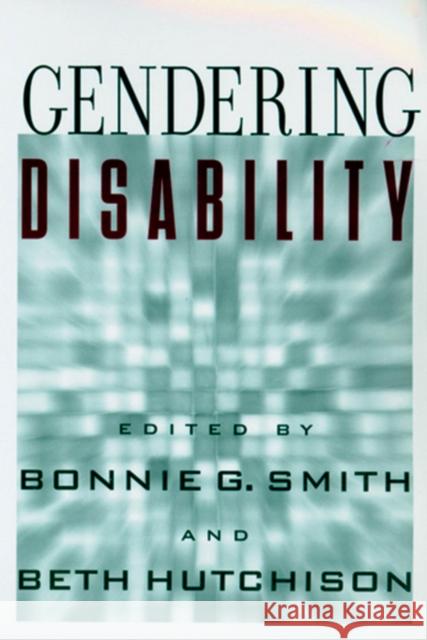Gendering Disability » książka
Gendering Disability
ISBN-13: 9780813533735 / Angielski / Miękka / 2004 / 328 str.
"This compilation is a pioneering study of the 'borderlands' of the body. The diverse chapters speak to activists and scholars, as well as those less familiar with the issues of disability studies and gender studies. It will serve the academic and activist communities well, encouraging new insights into the ways we define ourselves and others."-Susan Burch, author of Signs of Resistance: American Deaf Cultural History, 1900 to World War II "Gendering Disability is among the most intellectually stimulating books I have read in years. The stunning breadth of the discussion evokes personal experience with disability, elucidates the historical and social meanings of bodily differences, and places disability within other theoretical frameworks." --Alice Kessler-Harris, author of In Pursuit of Equity: Women, Men, and the Quest for Economic Citizenship in Twentieth Century America Disability and gender, terms that have previously seemed so clear-cut, are becoming increasingly complex in light of new politics and scholarship. These words now suggest complicated sets of practices and ways of being. Contributors to this innovative collection explore the intersection of gender and disability in the arts, consumer culture, healing, the personal and private realms, and the appearance of disability in the public sphere-both in public fantasies and in public activism. Beginning as separate enterprises that followed activist and scholarly paths, gender and disability studies have reached a point where they can move beyond their boundaries for a common landscape to inspire new areas of inquiry. Whether from a perspective in the humanities, social sciences, sciences, or arts, the shared subject matter of gender and disability studies-the body, social and cultural hierarchy, identity, discrimination and inequality, representation, and political activism-insistently calls for deeper conversation. This volume provides fresh findings not only about the discrimination practiced against women and people with disabilities, but also about the productive parallelism between these two categories. Bonnie G. Smith is Board of Governors Professor of History at Rutgers University and a past director of the University's Institute for Research on Women. Beth Hutchison teaches in the department of women's and gender studies at Rutgers University and is associate director of the Institute for Research on Women.











